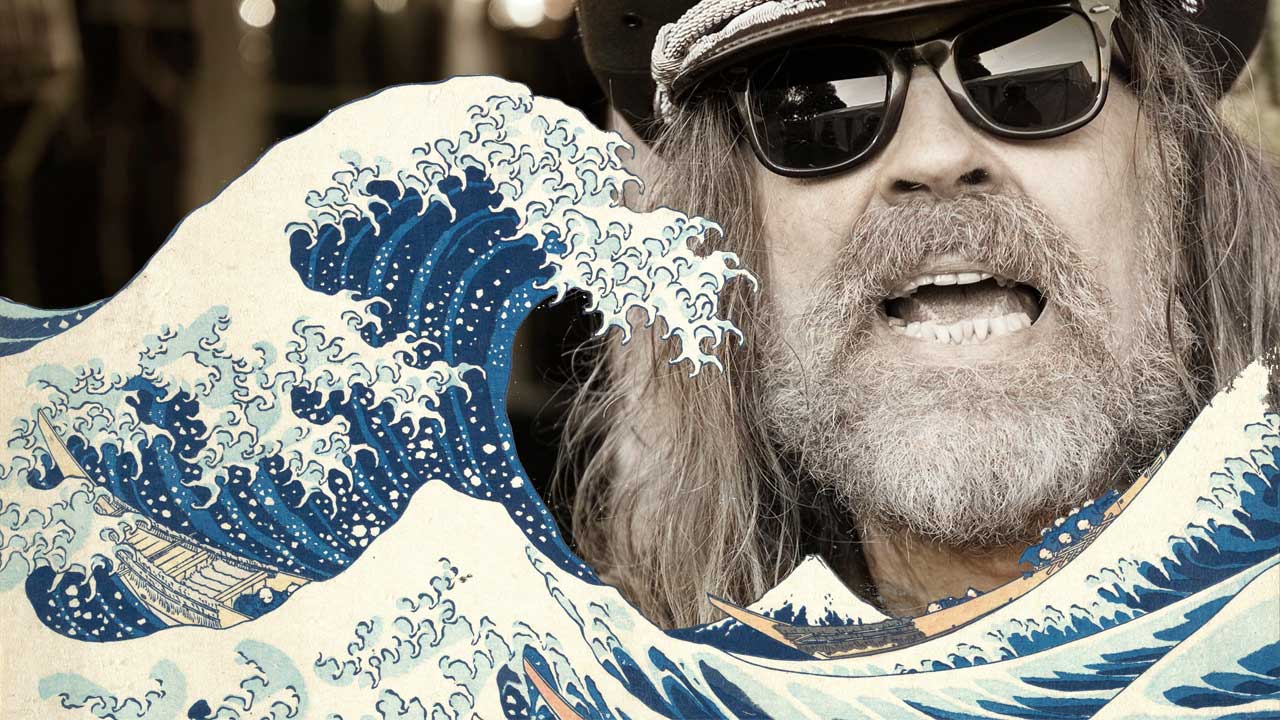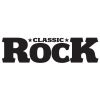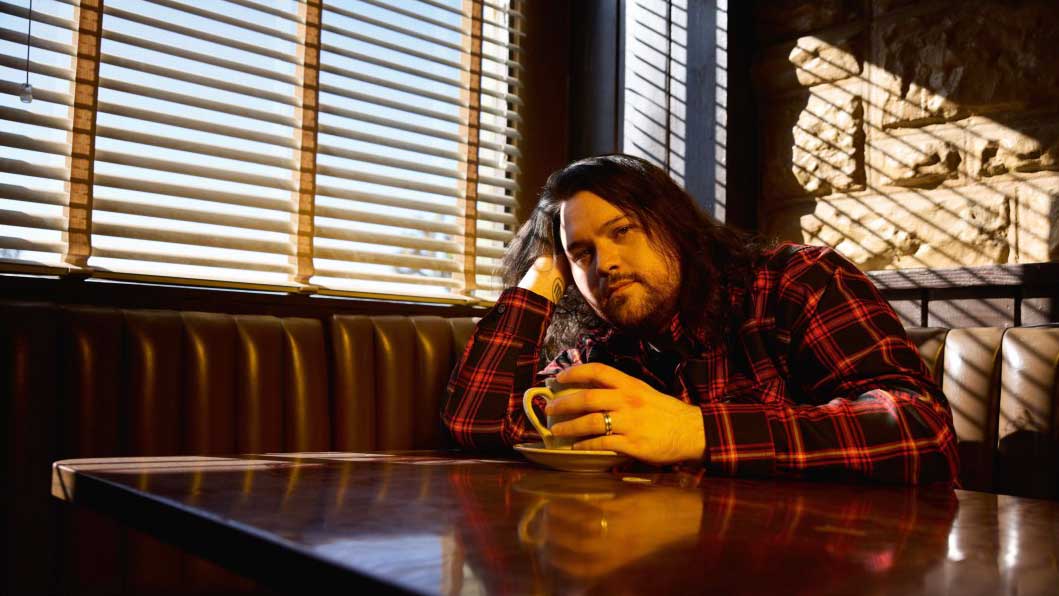The five greatest obscure Japanese rock albums ever, by Julian Cope
Let Julian Cope be your guide to a world of leatherbound thrill-junkies, cosmic shamans, barbarians and seekers

Julian Cope is up early. At the very un-rock’n’roll hour of 7am, in fact. Classic Rock catches him sweeping his floor.
“Whenever I’m writing,” he says, “the best way to become an author is to feel like one. When I was doing The Megalithic European [Julian's book on historic sites in Ireland and mainland Europe], I was getting up at a quarter to five every morning. I’ve spent the last ten years seeing so many of my so-called punk contemporaries becoming increasingly slack. It pushes me the other way and makes me want to do more.”
Cope's 2008 album Black Sheep found the singer on familiar turf: the outsider in modern Western culture. It was his most melodic work for some time, an acoustic shindig buffeted by orchestral percussion, harmonies and a bloody great Salvation Army drum.
“I thought it would give it all a wonderful sense of ritual. There’s nothing more heathen than the Christianity of the Salvation Army. They have ‘Blood and Fire’ on the drum. That’s metal!”
The record was informed by Cope’s second sortie into rock literature, the fabulously enlightening Japrocksampler. Or, as the byline puts it: ‘How the post-war Japanese blew their minds on rock’n’roll’.
A companion piece-of-sorts to his earlier Krautrocksampler – 1995’s magisterial overview of the German rock innovators of the 60s and 70s – the musicians in Japrocksampler cover similar territory to Cope’s artistic and stylistic ouvre: leatherbound thrill-junkies, cosmic shamans, barbarians, seekers and diligent scholars. It makes him the perfect person to guide us through the unheard classics of Japrock – and it also affected his approach to record-making.
“It’s like when you come back from abroad and you’ve got so used to having to reduce what you’re saying to the sum of its most effective parts,” Cope explains. “I’ve started finding the most incisive way to do something. And if you start writing with an intellectual overview, you’ve got to sugar it with melodies and beats that are simple. You want people to get it.”
Sign up below to get the latest from Classic Rock, plus exclusive special offers, direct to your inbox!
Take a trip to the outer limits of sound with Julian Cope as your guide.

Far East Family Band - Parallel World (Columbia/Mu Land, 1976)
"If you’re a fully gen’d-up Krautrocker, you’re probably best starting with Parallel World. It’s produced by ex-Tangerine Dream/Ash Ra Tempel man Klaus Schultze and is an hour of full-on Cosmic Jokers’ style space-rock. It doesn’t suffer from any dodgy Gong-isms either. It’s hard, it’s sleek, it’s motorik and it really does the business."
Flower Travellin' Band - Satori (Atlantic, 1971)
"Satori is number one in my list in the book. If you look at all the modern doom bands, all of them grew up listening to Satori. Flower Travellin’ Band’s Made In Japan (1972) is also very good for people into the later Love period, when Arthur Lee got heavy and started to investigate being black as opposed to being in denial of that.
"Since writing the book, I’ve recently heard from one of the guys from the Flower Travellin’ Band, who was amazed by it. I can’t even say if his response was particularly positive, because he was just amazed that there was even a need for a book like Japrocksampler."
Les Rallizes Denudés - Heavier Than A Death In The Family (Ain’t Group Sounds, 1995)
"If your pleasure centre is forged by the Velvets’ side of punk, then definitely Heavier Than A Death In The Family (recorded in 1973 and ‘77) is the one. In certain circles of Japanese rock, there’s a mystical quality going on. Certainly with Speed, Glue & Shinki and also Les Rallizes Denudés.
"I think (songwriter/guitarist) Takeshi Mizutani was literally working out his own demons by standing in the eye of the storm. And stuff like 2003’s Blind Baby Has Its Mother’s Eyes is outrageous. That’s some of the heaviest music I’ve ever heard. It’s like Blue Cheer, but we’re talking 19-minute trudge.
"So it’s doing what Blue Cheer were doing around the time of Outside Inside, but it’s really punishing the fucking metaphor. Lots of distortion, almost to the point of late-period Kraut, where people like Die Krupps would get so heavy the drums and bass would disappear. You’re literally on your knees."
Itsutsu No Akai Fusen - Flight 1 & 2 (URC, 1970-71)
"The only folk albums I became obsessed with were Flight 1 & 2. I love ‘em. They’re very cosmic, probably the equivalent of some of Zappa’s Straight label stuff, or (Cosmic Jokers’ leader) Rolf-Ulrich Kaiser’s Pilz records. It’s very beautiful, very exquisite. But it’s almost like taking the Velvets’ third album and turning it into meditative stuff.
"It’s got female vocals and is really beautiful. It’s like Mo Tucker meets Steve Martin in The Jerk, where he sings that duet with Bernadette Peters called Tonight You Belong To Me. It’s slightly ghostly and shadowy."
Speed, Glue & Shinki - Eve (Atlantic, 1971)
"Those European heavy bands were all trying to show they were as good as Cream, but Speed, Glue & Shinki were literally off their fucking heads. I think there’s a real uniqueness to them – that climbing, disgusting, crab-like bass which is undermining everything the blues should do. I think there’s gonna be a new generation over here that, once they get down with Speed, Glue & Shinki, are gonna be creating some of the most fantastic, un-blues blues you’ll ever hear.
"It’s similar to first-album Blue Cheer. The trouble with experimental music is that people who do it don’t want to fail. When we did Drain’d Boner, the last Brain Donor album, in many ways it failed because it was so experimental. That’s what was so powerful about this band: their wantonness, their greed for the shock and novelty of what they were doing.
"For me, the best rock’n’roll always has the right combination of novelty and tradition. Because Joey Smith was the singer as well as the drummer, he had control of the rhythm and was literally making his point with the snare and bass drums. He’d be bringing it down until you’d just think: ‘What the fuck is that?!’"
This feature originally appeared in Classic Rock 138, in October 2009.
Classic Rock is the online home of the world's best rock'n'roll magazine. We bring you breaking news, exclusive interviews and behind-the-scenes features, as well as unrivalled access to the biggest names in rock music; from Led Zeppelin to Deep Purple, Guns N’ Roses to the Rolling Stones, AC/DC to the Sex Pistols, and everything in between. Our expert writers bring you the very best on established and emerging bands plus everything you need to know about the mightiest new music releases.

